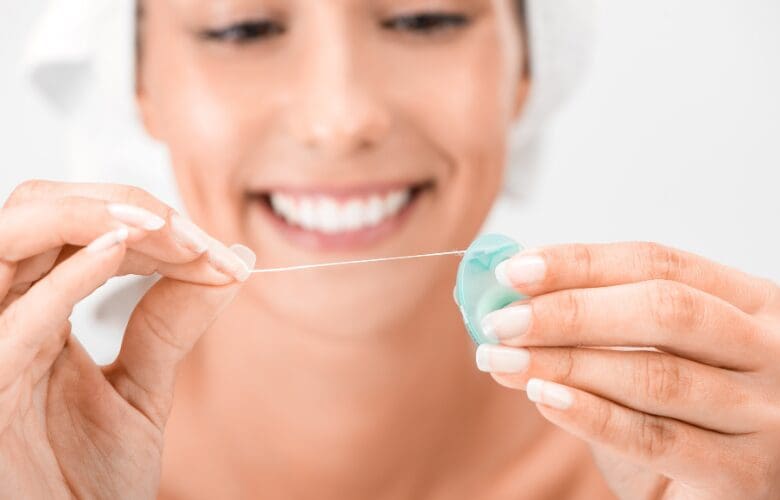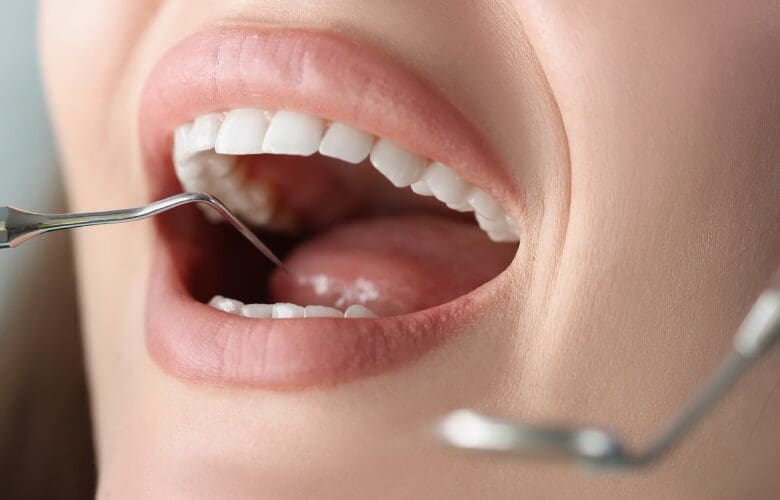Boost Your Oral Microbiome Health with These 7 TCM Practices
Both Western dentistry and Traditional Chinese Medicine (TCM) share a common belief: oral health is much more than just a pretty smile. It’s the key to keeping your whole body in sync – from your heart to your immune system and even your mental well-being. Dental problems can send shockwaves through your overall health. Today, let’s dive into TCM practices for oral health and how they can help you naturally care for your oral microbiome. We’re about to uncover the hidden treasures of this tiny yet mighty ecosystem.
THE ORAL MICROBIOME
Your oral microbiome is like a bustling city in your mouth! This tiny world is full of bacteria, viruses, and fungi that call your oral cavity home. It’s not as icky as it sounds, though. In fact, it’s essential for your well-being!
In TCM, balance is the name of the game, and your oral flora is no exception. A harmonious oral microbiome is vital for good health. It’s like yin and yang – you need the right balance to stay tip-top.
When your oral microbiome is in harmony, it paves the way for smooth “Qi” (vital energy) and “Blood” flow throughout your body. But when this balance gets out of whack, it can wreak havoc on your internal organs, messing not only your oral health but also your overall well-being.
Now, before we jump into TCM practices for oral health, let’s take a quick look at the connection between your gut and oral health. It’s an important piece of the puzzle, so hang tight!
THE GUT-ORAL HEALTH CONNECTION
The mouth and the gut are like long-lost buddies who love to chat. TCM knew about this connection for centuries. When your oral microbiome is happy, it sends good vibes to your digestive system.
Your digestive system, or “Spleen” and “Stomach” energies, is the powerhouse that transforms food into vital energy, or “Qi,” that fuels your entire body. This process starts in the mouth, where digestion begins with enzymes in your saliva.
But here’s the kicker – when things go south in your mouth, your gut can feel the heat. Unhappy oral flora can lead to imbalances. TCM calls it a ‘ripple effect.’
If your mouth’s teeming with bad bacteria, it can sneak down into your gut. Not a friendly visit! That’s when your tummy might start throwing tantrums, leading to issues like bloating, indigestion, or even more serious gut problems.
On the flip side, an unhappy gut can send trouble back up to your mouth. This can cause issues like bad breath and gum problems.
So, TCM’s advice? Keep both buddies – the mouth and the gut – in harmony. It’s like maintaining peace in your body’s communication network. A happy mouth means a happy gut and a happy gut returns the favor.
UNDERSTANDING TOOTH-ORGAN RELATIONSHIPS
In Chinese Medicine, there’s this fascinating concept called the TCM tooth chart. It’s like a secret map that connects your teeth to different meridians and organs in your body. Let me break it down for you.
According to TCM, each tooth is linked to specific meridians, which are energy pathways and organs in your body. These relationships are significant in understanding how dental issues may indicate problems in related organs or systems.
TCM practitioners believe that tooth and gum issues can be like little warning signs. When something goes wrong in your mouth, it can reflect problems in the related meridian and organ. It’s like a whisper from your body, saying, “Hey, something’s not right here!”
For instance, if you’re experiencing gum troubles near a tooth connected to your stomach meridian, it might signal digestive issues. TCM looks at the big picture – your body as a whole.
Here is a simplified overview of the tooth-organ relationships in TCM:
- Upper Right Incisor: Linked to the Kidneys.
- Upper Left Incisor: Associated with the Bladder.
- Upper Right Canine: Connected to the Stomach and Spleen.
- Upper Left Canine: Related to the Heart and Lungs.
- Upper Right Premolars: Linked to the Gallbladder.
- Upper Left Premolars: Associated with the Liver.
- Upper Right Molars: Connected to the Lungs and Colon.
- Upper Left Molars: Related to the Liver and Stomach.
- Lower Right Incisor: Linked to the Kidneys.
- Lower Left Incisor: Associated with the Bladder.
- Lower Right Canine: Connected to the Liver and Gallbladder.
- Lower Left Canine: Related to the Heart and Small Intestine.
- Lower Right Premolars: Linked to the Stomach and Spleen.
- Lower Left Premolars: Associated with the Heart and Lungs.
- Lower Right Molars: Connected to the Large Intestine and Stomach.
- Lower Left Molars: Related to the Spleen and Pancreas.
7 TCM PRACTICES FOR ORAL HEALTH
In TCM, maintaining good oral health is not just about brushing and flossing; it’s a holistic approach that considers the interconnectedness of the body. Here are some TCM-based tips and practices for optimal oral health:
1. Tongue Diagnosis
TCM practitioners use the tongue’s appearance to identify imbalances in the body’s internal organs, which can directly impact oral health. For example, a thick or discolored tongue coating might signal digestive issues that link to oral problems like bad breath or gum disease.
But the cool part? It’s not just about fixing today’s issues. It’s like a sneak peek into the future. Tongue diagnosis spots those early hints of trouble so you can keep your oral microbiome happy and healthy in the long run.
2. Dietary Choices
What you eat isn’t just about satisfying your taste buds; it’s like a blueprint for a healthy mouth. Food plays a massive role in your overall well-being, including oral health. So, making smart dietary choices is like investing in a solid foundation for your oral microbiome.
TCM encourages a balanced diet with a variety of colorful fruits and veggies. It’s not just about vitamins and minerals; these foods help maintain harmony in your body, which reflects in your mouth. Plus, they recommend steering clear of excess sugar and overly processed stuff. This way, you’re not feeding the bad bacteria that can lead to cavities and gum issues.
3. Acupuncture
Acupuncture isn’t just for back pain or relaxation; it’s like a VIP pass to better oral health, too. When those tiny acupuncture needles do their thing, they’re helping your body find its groove and maintain balance. This is great news for your oral microbiome because a well-balanced body means your mouth stays happy.
Let’s say you have some oral issues, like jaw pain or teeth grinding. Acupuncture can swoop in and ease that discomfort by targeting specific points related to your mouth and jaw. Plus, it’s all about improving blood circulation and reducing inflammation, which can be a game-changer for keeping gum problems and other oral ills at bay.
4. Herbal Teas
Herbal teas aren’t just cozy beverages; they’re like nature’s gift for oral health. Take green tea, for instance. It’s packed with antioxidants that battle harmful bacteria in your mouth, which can lead to cavities and gum troubles. Sip on some green tea, and it’s like sending a cleaning crew into your oral city.
And if you’re a fan of peppermint tea, it’s your breath’s best friend. Peppermint’s natural oils work like a breath freshener, tackling foul odors in your mouth. It’s like giving your mouth a minty makeover, minus the sugar.
5. Mindful Eating
Mindful eating is not just for your waistline; it’s a secret sauce for oral health. When you eat mindfully, you’re savoring every bite, chewing properly, and giving your digestive system a gentle heads-up. This approach can do wonders for your oral health.
Chewing your food thoroughly, for example, aids digestion from the get-go. It’s like breaking down the food into manageable pieces, which makes it easier for your stomach to do its thing. So, it’s not just what you eat but how you eat it that counts. It’s like showing your oral microbiome some extra love by being present with every meal.
6. Emotional Balance
When your emotions are in check, it’s like giving your oral microbiome a warm hug. Stress, for instance, can mess with your immune system and pave the way for oral problems like canker sores or gum disease. But when you’re emotionally balanced, your body is better equipped to fend off these issues.
Plus, TCM believes emotions can impact specific organs. The liver is tied to your anger, and the kidneys are buddies with fear. So, if you’re on an emotional rollercoaster, it can affect these organs and, indirectly, your oral health. Finding emotional balance, whether through meditation, relaxation, or simply enjoying life, is like a natural boost for your mouth’s well-being.
7. Herbal Mouth Rinses
Herbal mouth rinses are a natural way to keep your mouth in tip-top shape. Ingredients like sage, thyme, or tea tree oil have antibacterial and anti-inflammatory superpowers, which can help fight off harmful bacteria, soothe gums, and freshen your breath. These rinses can also be gentle on your oral microbiome, unlike some commercial mouthwashes loaded with harsh chemicals.
The Bottom Line
TCM practices for optimal oral health are the hidden gems for a killer smile and a rock-solid body. Dive into them, and you’re not just keeping your grin fabulous – you’re supporting your entire health game. It’s the secret sauce for oral and body harmony. Reach out to a TCM practitioner for guidance today and discover the transformative impact it can have on your well-being. Your smile and your body will thank you!













